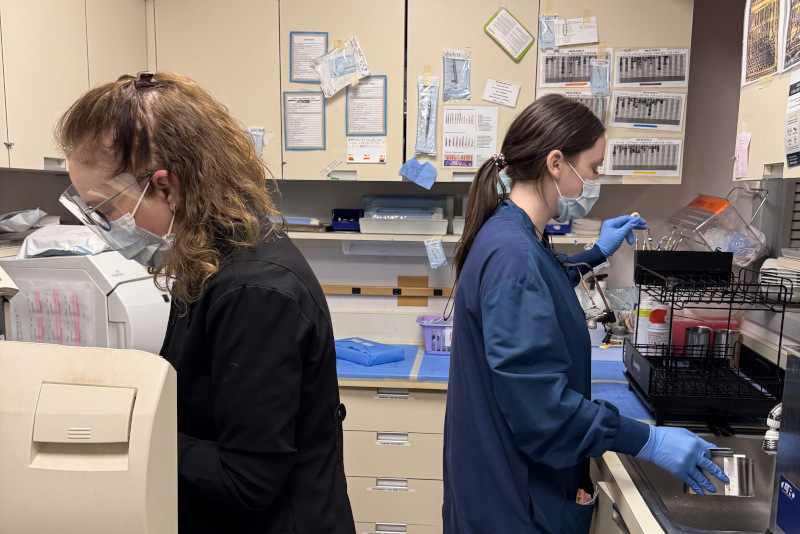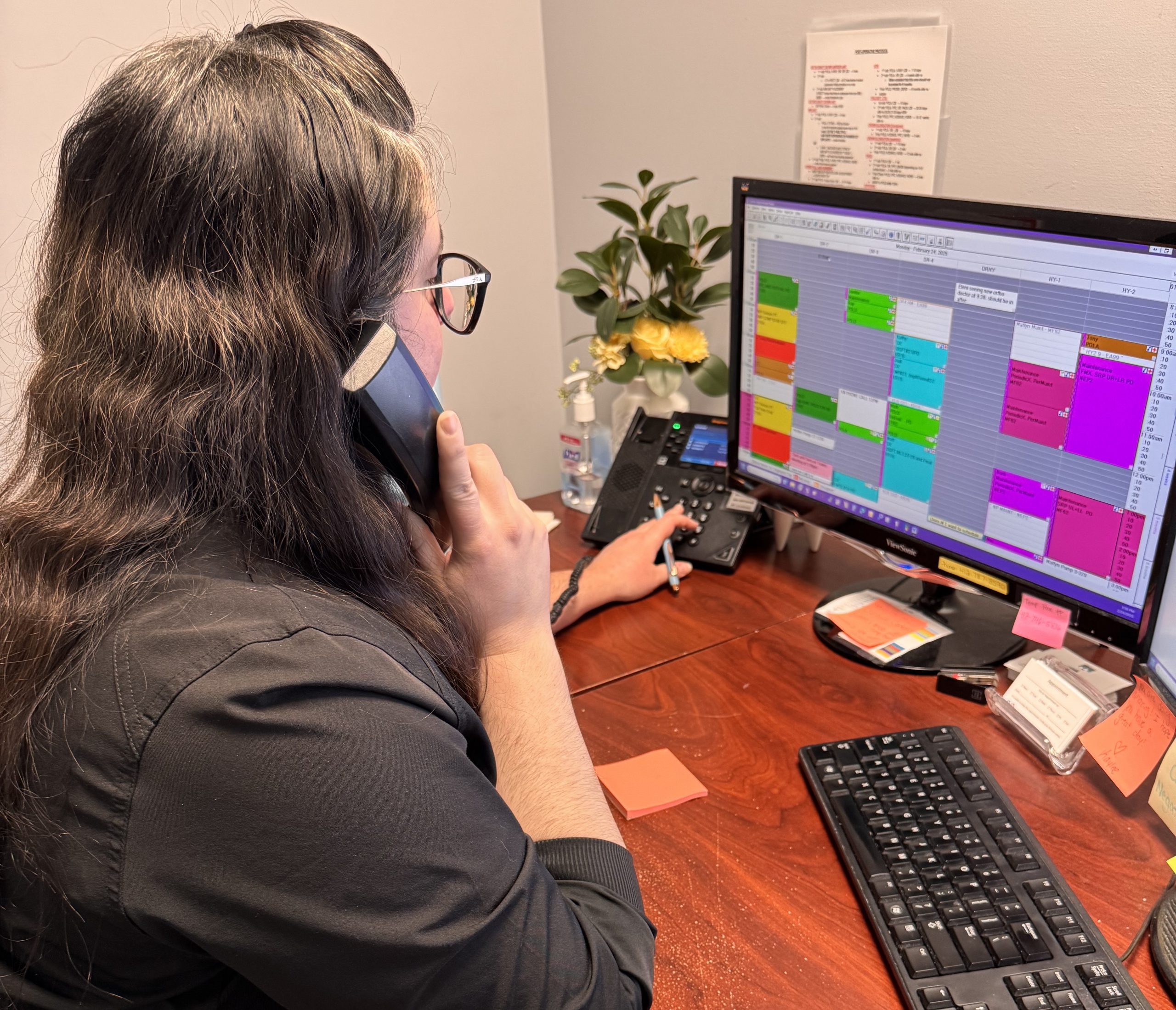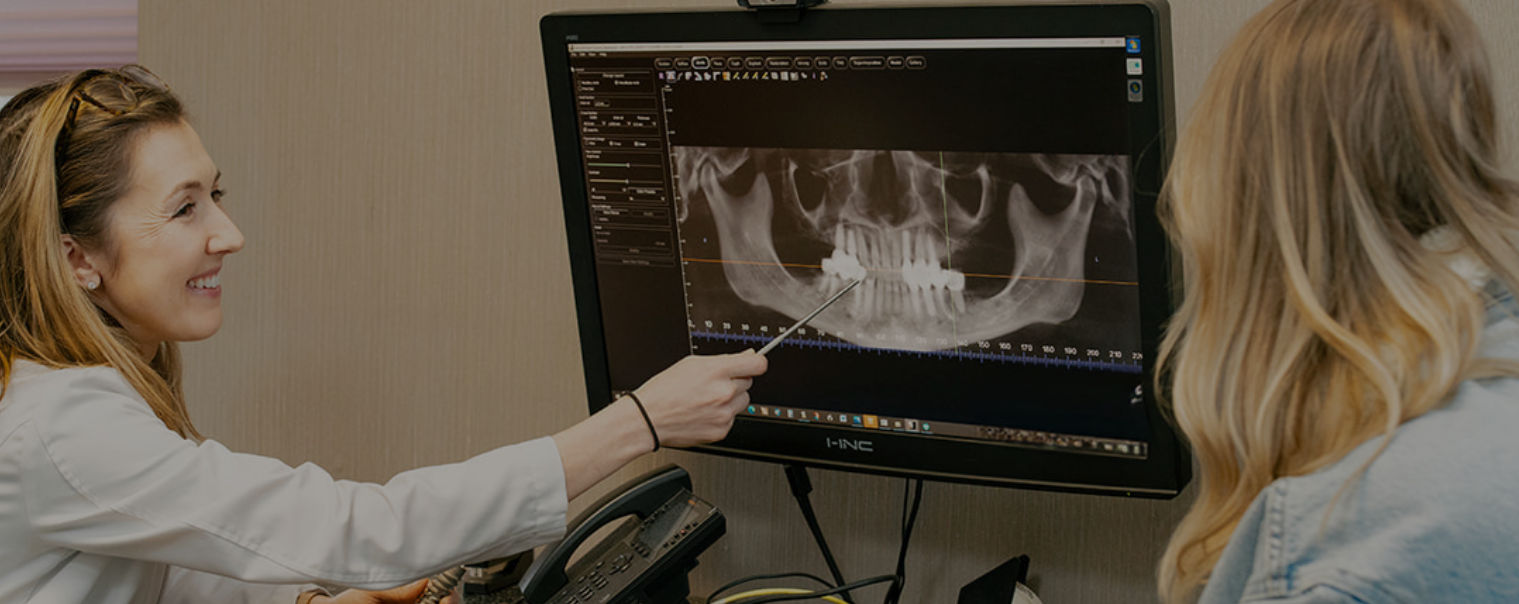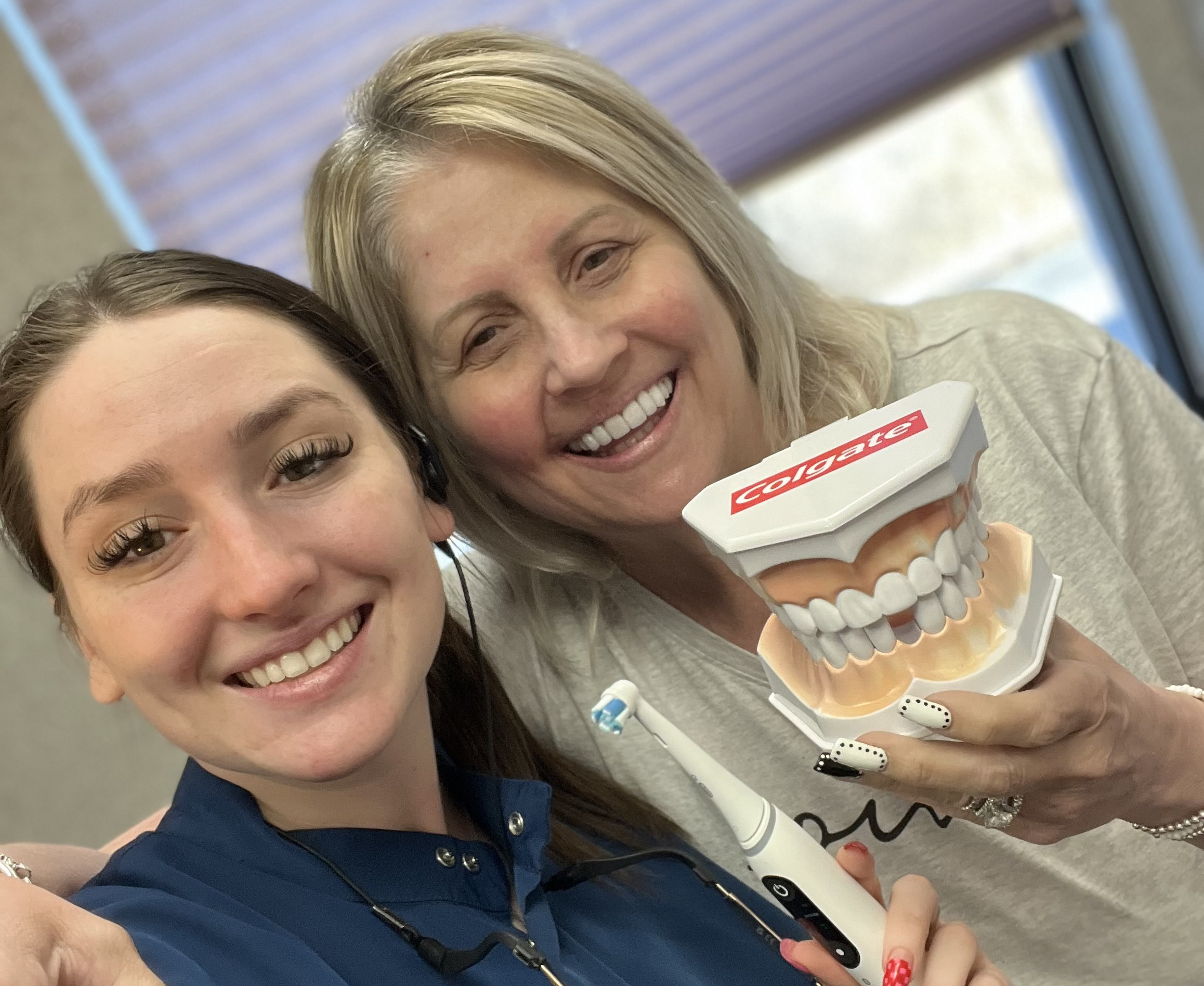
Stages & Treatment of Gum Disease

When your body senses threats like infections, lacerations, or foreign bodies, it rushes support to the area. The inflammatory response in healthy individuals kills off bacteria and helps to speed healing. Unfortunately, when it comes to your oral tissues, things can be a little more complicated.
From the initial consultation
to post-procedure care,
we are here to support you
every step of the way.

If you have teeth riddled with plaque and tartar accumulations, your teeth and gums are teeming with bacteria, making it impossible for the body to resolve the problem on its own. Instead of actively attacking bacteria, the body takes a new approach—it starts to protect itself by backing away from the problem. If the early stages of gum disease are left untreated, the gums will recede away from the teeth, triggering a cascade of other dental issues. When the gums start to recede, they create pockets between the teeth and the gum tissue, where more plaque and bacteria can accumulate. Over time, simple gum disease can morph into advanced periodontal disease, where infection, tooth loss, and serious systemic health problems are very real threats.
Our team is ready to help you achieve the smile you’ve always dreamed of.
Fortunately, Pittsburgh Periodontists Dr. Roll and Dr. Williams offer treatment for any stage of periodontal disease to help your body to heal. Here are the stages of periodontal disease, the problems each stage can cause, and how we will treat your condition.
Stage 1: Gingivitis
One of the reasons gingivitis is so dangerous is because it is very easy to overlook. Patients with gingivitis may have bad breath and gums that bleed when they are flossed. When patients present with gingivitis, we will check the extent of the condition by using a tool called a periodontal probe. This probe is a very small measuring stick that is inserted between the gum tissue and the teeth to check the depth of the periodontal pockets. Healthy teeth have a normal pocket depth of between 1 and 2 millimeters. If you have gingivitis, your pockets may be 2-4 millimeters deep, signaling a problem.



Ask us about treatments to eradicate gum disease.
Fortunately, gingivitis is highly treatable. The most effective form of treatment at this stage is good oral hygiene on the patient’s part. You’ll be asked to evaluate and improve your oral hygiene regimen, including proper brushing, flossing, rinsing, and coming in for regular checkups. We might also recommend a deeper dental cleaning than is normally given during semi-annual visits to remove plaque and tartar accumulations.
Stage 2: Early Periodontitis
If left untreated, simple gingivitis can advance into early periodontal disease. Early periodontitis is marked by inflamed gum tissue that has surrounded the teeth, resulting in early bone loss. Patients with early periodontal disease typically have a gingival pocket depth of between 4-5 millimeters. If you have early periodontal disease, your gums will bleed more readily during flossing and professional cleanings, and your gum tissue will start to recede, creating an aged look.
Treatment for early periodontitis includes non-surgical treatment methods, such as in-depth cleanings. A treatment called scaling and root planing can be used to remove layers of built-up tartar and smooth out the surfaces of the teeth. We can also clean the surfaces of the teeth that are underneath the gingival pockets, making it possible for the gums to reattach. At this stage, patients are encouraged to overhaul their oral hygiene regimen to keep periodontal disease from progressing. We might also recommend coming in more frequently for thorough cleanings, or scheduling follow-up visits to track your progress.
We are committed to delivering
Excellence in Dental Care



Trust our expert team to
help you achieve a smile
that reflects your true self
Excellence and Expertise


With dental implants, you can restore your smile, regain your confidence, and enjoy all the benefits of having strong, healthy teeth.
Stage 3: Moderate Periodontitis
If patients continue to ignore their oral health, early periodontitis can morph into moderate periodontitis, where moderate levels of bone loss can occur. Infections in the area can create bleeding, pus development, and pain around the teeth. Gum recession can make the teeth sensitive and uncomfortable. As the gums pull away from the teeth, the teeth lose their natural support system and they can become loose. Patients with moderate periodontitis have gingival pocket depths of between 6 and 7 millimeters. At this stage, oral infections can start leeching into your bloodstream and start causing an inflammatory response throughout your body.
To treat moderate periodontitis, our periodontists need to clean and sanitize the area inside of the gingival pockets. To do this effectively and to reduce bleeding, we use a procedure called LANAP, or Laser Assisted New Attachment Procedure. During LANAP, a laser tool fitted with a small probe will be inserted into the gingival pocket and moved around the teeth. The probe emits a gentle, yet highly effective wavelength of concentrated light to simultaneously eradicate diseased tissue and sanitize the area. LANAP also helps the pocket to create a protective blood clot, keeping new bacteria from invading.
Never again suffer from the use of dentures, or the pain and embarrassment of missing teeth. Ever!

Stage 4: Advanced Periodontitis
By the time advanced periodontitis sets in, the gums are severely infected and prone to oozing. The gingival pockets around the teeth are deeper than 7 millimeters, which is over a quarter of an inch. Patients with advanced periodontitis can struggle with severe pain while chewing, offensive bad breath, and a very foul taste in the mouth due to the infection. Because the gums have regressed so significantly, patients can lose teeth at this stage, and their existing teeth can shift to fill the voids. Advanced periodontitis isn’t just a dental issue. It has also been tied to other serious health concerns, including heart disease, diabetes, and even some forms of cancer.
Urgent care is needed to halt the progress of periodontal disease and return the patient to normal health. We will start by cleaning the teeth and performing LANAP inside the gingival pockets to reduce bacterial levels and inflammation. Some patients are prescribed an antibiotic to help to control the infection throughout the stages of periodontal treatment. LANAP is beneficial because it encourages the regrowth of bone tissue, ligaments, and gum tissue, helping the area to heal. To repair existing damage, we might also recommend a ridge augmentation, bone grafts, or dental implants.
Whether you are dealing with early gingivitis or the last stages of periodontal disease, we can help. Contact us to start your treatment today.

CHECK OUR
Patient reviews
“Very knowledgeable and friendly staff…”


